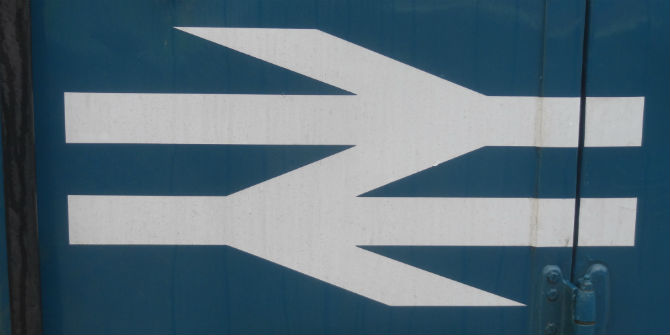 This week has seen the latest in a all too frequent series of Islamist terror attacks on major European cities. This time Brussels, home of the European Union and European Commission came under attack, and it seems with it the very idea of the European area of free movement, writes Joseph Downing. He claims that regardless of the rhetoric of certain Eurosceptic parties, such as UKIP, who have called for the UK to reclaim control of its borders, the role of freedom of movement in facilitating such terrorist atrocities is far more complex – especially for the UK, which sits outside the Schengen freedom of movement zone.
This week has seen the latest in a all too frequent series of Islamist terror attacks on major European cities. This time Brussels, home of the European Union and European Commission came under attack, and it seems with it the very idea of the European area of free movement, writes Joseph Downing. He claims that regardless of the rhetoric of certain Eurosceptic parties, such as UKIP, who have called for the UK to reclaim control of its borders, the role of freedom of movement in facilitating such terrorist atrocities is far more complex – especially for the UK, which sits outside the Schengen freedom of movement zone.
While previous incidents, such as the Paris attacks, involved international manhunts as perpetrators crossed European borders, the Brussels attacks are not so directly linked to freedom of movement. Rather, the ability of such a complex network to operate (and indeed hide Europe’s most sought-after fugitive) for several months is much more a failing of intelligence and police tactics. It cannot be argued that there are not issues with border enforcement, but these are hardly a function of the Schengen agreement.
The trafficking of heavy arms from the Balkans into EU states is rather a problem with the EU’s external borders. Rather then re-establishing national borders it would be far more appropriate to work to create a European institutional response to strengthening controls and indeed fighting the organised crime which both demands such arms in Western Europe, but which also facilitates and arranges their transfer across the EU’s external borders.
In addition, the abstinence of the UK from the Schengen zone has not, it and of itself, aided in the UK stopping individuals from travelling to and from Syria and Iraq to join Daesh. Rather, with the complexity of information networks, and the reliance on telecommunications and social media, it seems logical here that a response should centre around strengthening intelligence gathering and sharing opportunities, both within Europe and also with its neighbours in North Africa and the Middle East, with which Europe already has very positive cooperation on both migration and trade issues.

As such, rather than attempt to bend to the desire of such groups – to halt the European project and impose inconvenient restrictions on individuals going about their daily life – critics of the Schengen zone should rather focus on how the European project and its valuable institutions could be strengthened. Far more appropriate and indeed fruitful for all Europeans would be the creation of institutions and mechanisms not to limit movement, but rather to enable the easier movement of intelligence, law enforcement and information across European borders.
To fight the threats that we face as Europeans in the 21st century, political and institutional responses need to be far more agile than simply imposing stricter and stricter border controls. In addition, creating large crowds of individuals awaiting security checks at airports, trams and metro stations may actually present possible attackers with attractive soft targets, thus exacerbating the risk.
The UK already has some of the most stringent immigration and border procedures in the world, and rather than encouraging a retreat further into our shell in response to the world in which we live, we must rather take the brave decision to embrace European colleagues and work to further European cooperation and integration, rather than undermining one of the most remarkable peace-building and -keeping organisations to date.
This article gives the views of the author, and not the position of BrexitVote, nor of the London School of Economics. Image by CC BY-SA 2.0).
Dr Joseph Downing is a guest teacher in the LSE’s European Institute and an LSE100 Fellow in Nationalism. His research and publications to date have focused on nationalism, security, integration and minorities in France at both the local and national level.







I find this to be an article built on wishful-thinking not critical thinking.
The prospect of EU security institutions is a genuinely harrowing one. Recent reporting has shown that corruption within the EU’s institutions is costing around 990 euros a year. They can’t even root out vast corruption from within their own ranks,so, how are the people of the EU supposed to trust them with their safety.
In addition, Brits can’t access EU countries when travelling from the UK with out ID. Is this really such a massive imposition on travel? Well, no, it’s not – certainly not to any real degree.
Its not directly about freedom of movement per se, but misguided social policies of a number of EU member states that increase the likelihood of bad actors having greater access to freedom of movement or, at least, the veneer of coming from non-threat states that should give one pause to consider the actual value of EU membership to UK security.
Not a whole lot of analysis here. The EU doesn’t look much like a peace keeping organization, except perhaps in the Balkans, where even the prospect of membership still influences the politics. Otherwise European nations are not inclined to fight with each other anymore, and even NATO, much less the EU, won’t stop Russia from gobbling up the Baltic states in the long run–again. The EU has failed to overcome its democracy and legitimation crises, though it has had many years to do so. Now, the euro undermines the continental economy while Schengen most definitely does allow terrorists and illegal migrants free movement in the Schengen zone. The EU cannot control or protect its external borders, and it cannot make the euro work for its poorest members. Looks like a bum deal for too many.